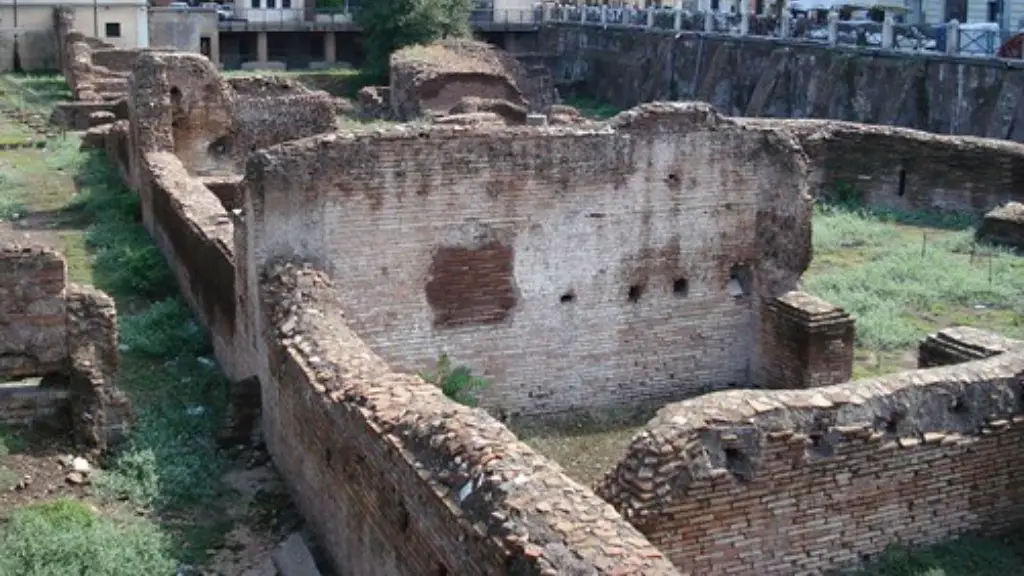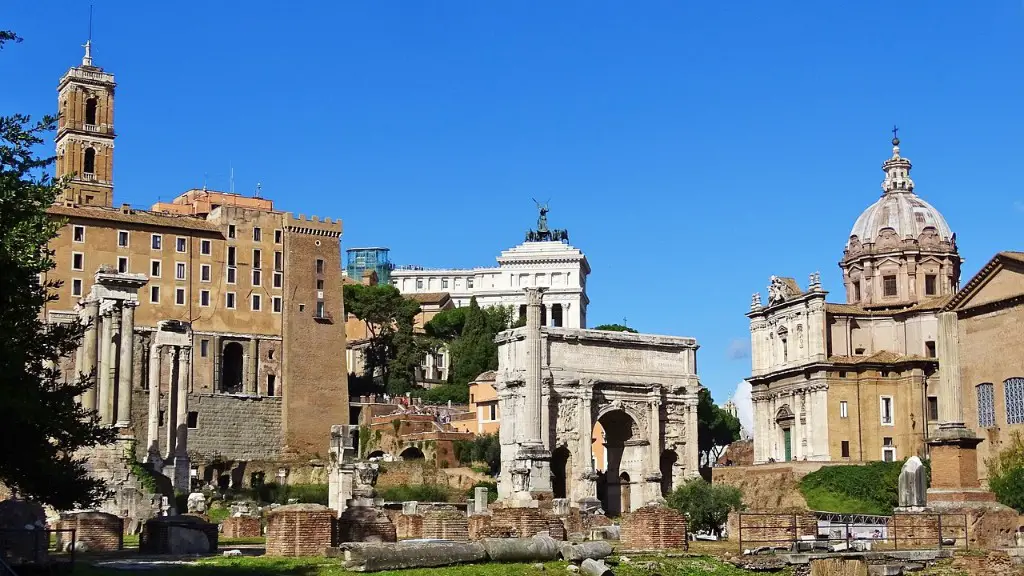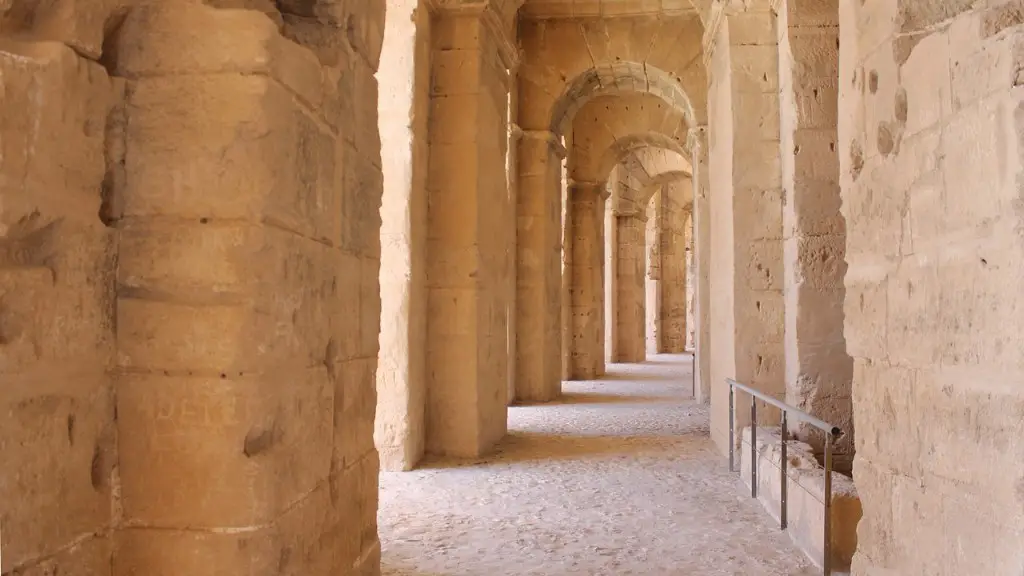Background
Ancient Rome was the capital of Italy and the centre of a great empire which existed from the traditional founding of Rome in 754 BC to its collapse in 476 AD. Throughout its many centuries of existence, Ancient Rome conquered most of Europe, North Africa, and parts of the Middle East, becoming an empire that stretched from the Atlantic Ocean to the Arabian Sea. The Romans valued stability, order, and expansion through conquest, but they also achieved great cultural advancements in the fields of law, engineering, religion, and philosophy. The Roman Empire was a time of great wealth, political stability, and social advancement for many of its citizens.
Rome Becomes an Empire
In 44 BC, Julius Caesar was declared Dictator for life, marking the official start of the Roman Empire. During his reign, he expanded the borders of Rome, built new aqueducts, and established the Roman legal system. After Caesar’s assassination, civil war between his supporters and his enemies erupted. The civil war concluded in 27 BC, with the ascension of Caesar’s adopted son, Octavian. Octavian, later known as Augustus, was officially declared the first Roman Emperor by the Senate in 27 BC. This marked the beginning of Roman Imperial Period, which lasted until 476 AD when the Western Roman Empire finally fell to Germanic invaders.
Expansion and Administration
Augustus and his successors built upon the infrastructure of the existing Roman Republic and developed it further to prioritize military strength. During the Imperial Period, Rome had a large professional army made up of legions and auxiliaries who were encamped throughout the Empire to protect the borders. Rome also sought to expand its borders through conquest and diplomacy. By the 2nd century AD, Rome was one of the largest empires in world history, stretching from the Black Sea to the Atlantic Ocean.
The Romans established an efficient administrative system to govern the Empire. The bureaucracy was divided into departments to manage tax collection, policy-making, religious ceremonies, and social welfare. Rome also created a legal code to ensure fairness and justice in the empire. These legal codes provided a foundation for many legal systems in Europe and elsewhere today.
Culture and Legacy
The Romans were great patrons of the arts and culture. They developed a rich literature, composed of epic poetry and historical stories, as well as a vibrant visual arts world that included mosaics, sculpture, and painting. Rome was also known for its architecture, creating beautiful temples and monuments to honor their gods.
The legacy of Ancient Rome is still present today in many ways. Their language, Latin, is still studied by many people. Their legal code is still used as the basis of many legal systems. And the infrastructure they built is still evident in many cities throughout Europe.
Government and Religion
The government of the Roman Empire was a monarchy, with the emperor serving as its ruler. During the Imperial Period, Rome was a republic in which popular assemblies held some power, but the emperor still held absolute power. The emperor was advised by a Senate, which included influential nobles, senators, and representatives from throughout the Empire.
Religion was an integral part of Roman society. The official state religion was the Cult of Jupiter, the patron god of Rome. This included gods such as Apollo, Venus, Mars, and Janus. The rise of Christianity during this period also had a great impact on the Empire.
Decline and Fall
The Roman Empire began to decline in the late 4th century AD due to a combination of political instability and over-expansion. The political stability of the Roman state had weakened, leading to a series of civil wars and eventually the fall of the Western Roman Empire in 476 AD.
The decline of the Roman Empire was hastened by external forces as well. Barbarian tribes from the north began invading the Roman provinces, and the empire was too weak to defend itself. This weakened the economic and governmental infrastructure of the empire, leading to its eventual collapse.
Economics
The Roman economy was based on agriculture, which was supplemented by trade. Rome was also well-known for its production of metals, pottery, and glass. Rome had a mint, which produced coins for trade and paid the salaries of Roman soldiers.
The Roman economy benefitted greatly from the Pax Romana, the 200 year period of peace and stability during the Imperial Period. This allowed for large-scale trade networks to develop, and helped the economy of Rome to expand and become one of the most powerful economies in the world.
Military
The Roman military was one of the best in the ancient world. It was made up of legions and auxiliaries, who were trained in a variety of offensive and defensive techniques. Rome used its military to expand its borders, and to defend against invading barbarian tribes.
The Roman army was well organized and equipped with a variety of weapons and tools. They used tactics such as the phalanx and the testudo, which helped them to outmaneuver and outlast their opponents. The Roman army’s reputation for strength and discipline was a major factor in the success of the Empire.
Technology
Throughout its 1200 year history, Rome was known for its advanced technology. Rome was the first society to build large walls and defensive fortifications to protect its citizens. Rome also had a large and efficient road network, which allowed them to transport goods and military forces quickly and efficiently.
Furthermore, Rome was a center of engineering, developing several technologies such as concrete, aqueducts, and irrigation systems. Rome also harnessed the power of steam with the use of baths. The Romans were also the first to develop the principles of architecture, which laid the foundation for modern architectural practices.
Science
The Romans developed a rich scientific tradition, and were the first to use modern scientific principles to analyze and explain natural phenomena. Roman scientists made significant breakthroughs in the fields of mathematics, engineering, astronomy, and medicine. Roman doctors also developed new treatments and cures, which laid the foundation for modern medical practices.
Throughout the Imperial Period, Rome spread its scientific knowledge to all areas of the empire. Innovations such as the Julian Calendar, developed by Julius Caesar, was the first calendar to be based on modern scientific principles. The Roman Empire also provided a platform for the spread of ancient Greek knowledge to the West.


